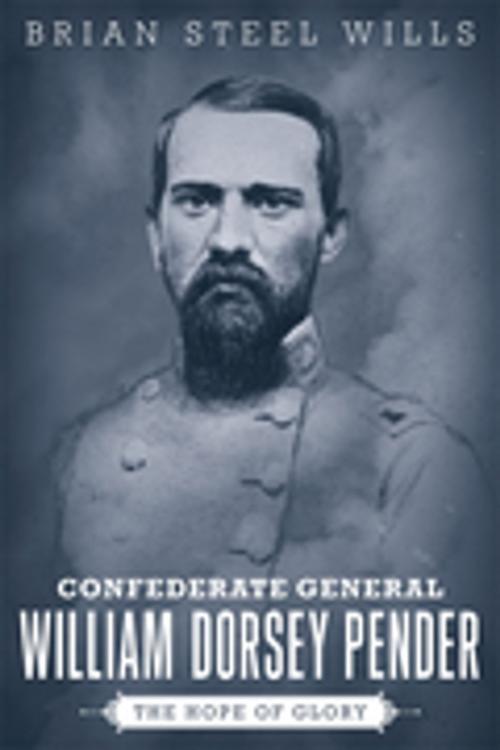Confederate General William Dorsey Pender
The Hope of Glory
Nonfiction, History, Americas, United States, Civil War Period (1850-1877)| Author: | Brian Steel Wills | ISBN: | 9780807153017 |
| Publisher: | LSU Press | Publication: | November 11, 2013 |
| Imprint: | LSU Press | Language: | English |
| Author: | Brian Steel Wills |
| ISBN: | 9780807153017 |
| Publisher: | LSU Press |
| Publication: | November 11, 2013 |
| Imprint: | LSU Press |
| Language: | English |
During the Civil War, North Carolinian William Dorsey Pender established himself as one of the Confederate Army of Northern Virginia's best young generals. He served in most of the significant engagements of the war in the eastern theater while under the command of Joseph E. Johnston at Seven Pines and Robert E. Lee from the Seven Days to Gettysburg. His most crucial contributions to Confederate success came at the battles of Second Manassas, Shepherdstown, Fredericksburg, and Chancellorsville. After an effective first day at Gettysburg, Pender was struck by a shell and disabled, necessitating his return to Virginia for what he hoped would be only an extended convalescence. Although Pender initially survived the wound, he died soon thereafter due to complications from his injury.
In this thorough biography of Pender, noted Civil War historian Brian Steel Wills examines both the young general's military career and his domestic life. While Pender devoted himself to military service, he also embraced the Episcopal Church and was baptized before his command in the field. According to Wills, Pender had an insatiable quest for "glory" in both earthly and heavenly realms, and he delighted in his role as a husband and father. In Pender's voluminous correspondence with his wife, Fanny, he shared his beliefs and offered views and opinions on a vast array of subjects. In the end, Wills suggests that Pender's story captures both the idealistic promise and the despair of a war that cost the lives of many Americans and changed the nation forever.
During the Civil War, North Carolinian William Dorsey Pender established himself as one of the Confederate Army of Northern Virginia's best young generals. He served in most of the significant engagements of the war in the eastern theater while under the command of Joseph E. Johnston at Seven Pines and Robert E. Lee from the Seven Days to Gettysburg. His most crucial contributions to Confederate success came at the battles of Second Manassas, Shepherdstown, Fredericksburg, and Chancellorsville. After an effective first day at Gettysburg, Pender was struck by a shell and disabled, necessitating his return to Virginia for what he hoped would be only an extended convalescence. Although Pender initially survived the wound, he died soon thereafter due to complications from his injury.
In this thorough biography of Pender, noted Civil War historian Brian Steel Wills examines both the young general's military career and his domestic life. While Pender devoted himself to military service, he also embraced the Episcopal Church and was baptized before his command in the field. According to Wills, Pender had an insatiable quest for "glory" in both earthly and heavenly realms, and he delighted in his role as a husband and father. In Pender's voluminous correspondence with his wife, Fanny, he shared his beliefs and offered views and opinions on a vast array of subjects. In the end, Wills suggests that Pender's story captures both the idealistic promise and the despair of a war that cost the lives of many Americans and changed the nation forever.















